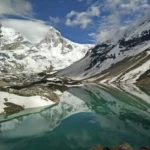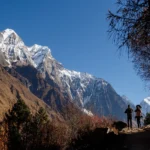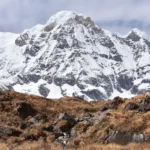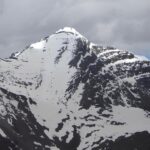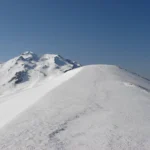May to June is the best time to visit the Bali Pass trek. If you trek to Bali Pass in the first half of May you will find abundant snow. The next season starts in September and remains accessible till mid-October. These months are best with comfortable trekking conditions, navigable trails, and ethereal landscapes.
If you time your Bali Pass Trek perfectly, you will witness the exquisite mountains, enjoy an adventurous pass crossing and immerse in an absolute wilderness. To explore a challenging trek like Bali Pass, you must be well informed about the best time to visit the Bali Pass Trek.
The trek remains closed during the winter as it snows extensively in the region. Heavy monsoon rain makes it difficult to attempt the trek in July and August. This leaves the summer months of May and June, followed by September to November in the latter half of the year.
Here is a detailed season-wise guide to Bali Pass Trek. Know more about the best time to visit Bali Pass and plan your trip according to your interests and preferences.
Bali Pass Trek in Summer (May to June)
Bali Pass season begins in May and continues till June. Summer is the best time to visit Bali Pass trek. The season offers remnants of winter snow at higher campsites and soothing summer landscapes at lower regions.
Bali Pass in May
Trekkers are welcomed with fresh snowfall if you visit Bali Pass in early May.
The Bali Pass Trek in the latter half of May is a treat for trekkers coming for snow. In May, the entire trail and campsites remain covered in snow. While an impressive amount of snow on the trek makes this experience worth remembering, reaching the summit is a challenge if the snow is unmanageable.
May is the best time to witness contrasting scenery. The lower campsites adorn the greens and vibrant blooms of rhododendrons, while the upper reaches remain wrapped in white sheets of snow.
Bali Pass Trek in June
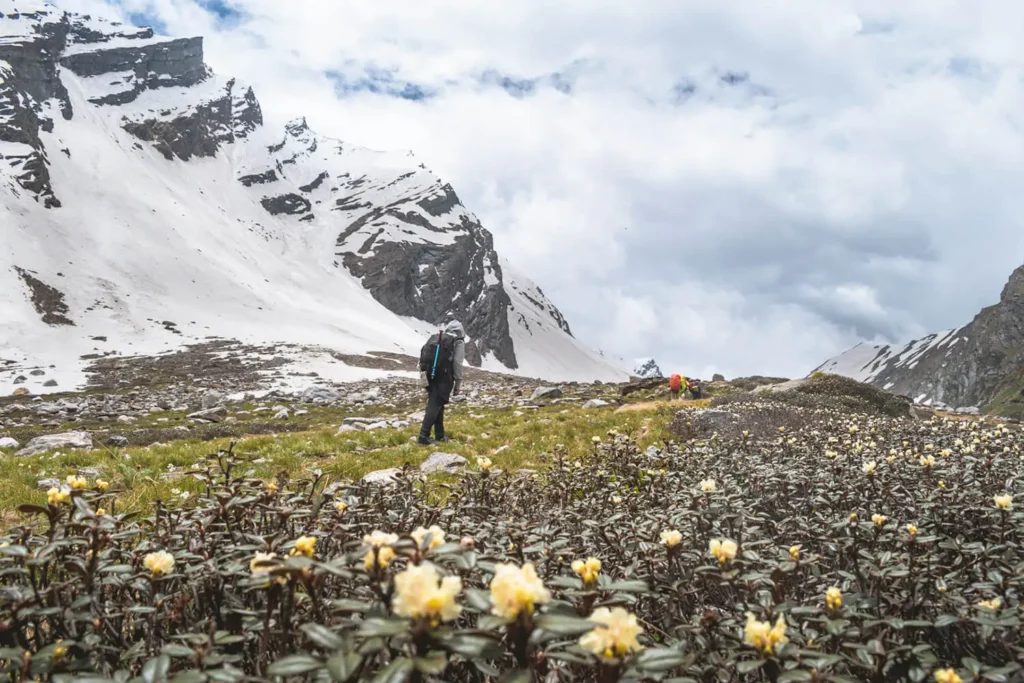
As June arrives, the snow at the lower campsites subsides in Bali Pass Trek. June is one of the best months to visit Bali Pass as you witness the transition from remnants of winter snow to vibrant summer shades.
The trek starts adorning the summer colours, making June one of the perfect times to do the Bali Pass Trek. The greenery beautifies the lower campsites and freshly bloomed Rhododendrons add vibrancy to the trail. The green takes over, and the wildflowers add to the beauty of the meadows. Ruinsara Valley glistens with colourful rhododendrons and wildflowers blooming lavishly.
Bali Pass in Trek in Monsoon (July and August) – Not Recommended
The trek is inaccessible owing to heavy rainfall in the region. It is dangerous to attempt the Bali Pass trek during these months. Torrential rain causes havoc in the region and landslides and roadblocks are common.
Bali Pass Trek in Autumn (September to November)
Autumn season begins in September and continues till mid-October. The season is perfect to indulge in contrasting autumn hues along the trail.
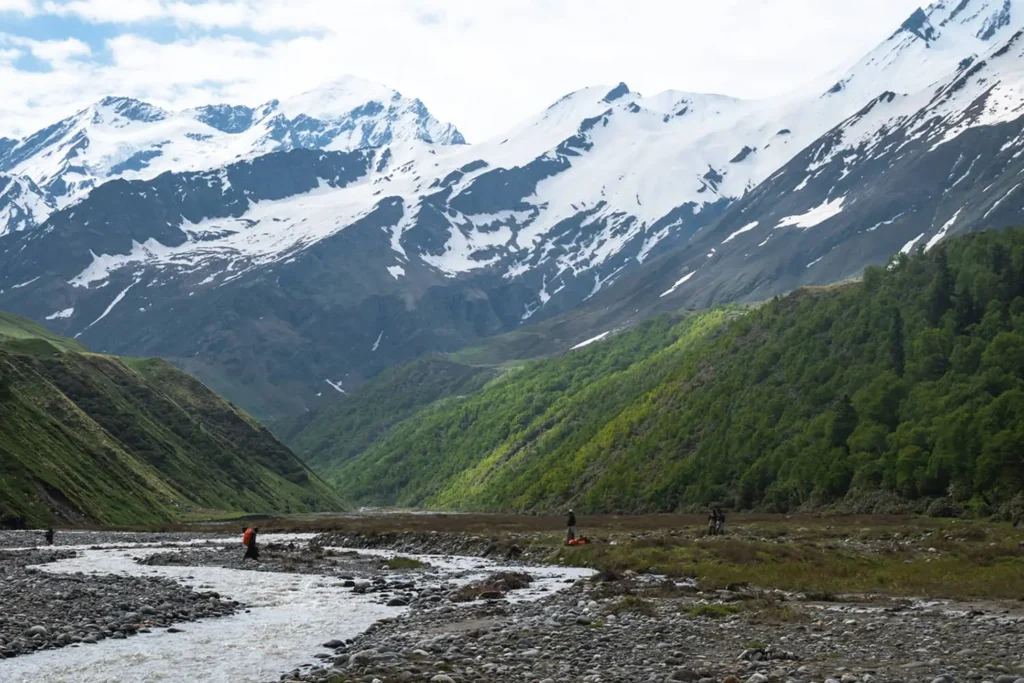
Bali Pass in September
As September arrives, the colours of the Bali Pass change. The lush green valley of Har Ki Dun embraces the warm and cosy hues of autumn. The temperature begins to fall, and it gets colder.
The skies are more precise as the rainy season has parted ways. The blue skies enhance the beauty of Kalanag, Bandarpooch, and Swarohigini on the Bali Pass trek. The crisp mountains mesmerise you, slipping you into reverie to be broken by the chilliness in the air. Bali Pass in September is the best time for trekkers who yearn for solitude. As an absence of snow deters trekkers from embarking on Bali Pass in the autumn months, the trail remains secluded, with fewer explorers on Bali Pass.
Bali Pass in October
Bali Pass in October is for trekkers who prefer the hues of autumn over the remnants of winter snow.
Clear skies and haze-free trail make October the best time to witness the grandeur of the Himalayan peaks against a cloudless blue sky. The golden, orange, and tinge of fiery red covers the forest and the meadows. The meadows transition into fall colours, spreading the autumn charm all around.
Trekkers also witness the season’s first snowfall if you trek towards the end of October.
Bali Pass Trek in Winter (December to March) – Not Recommended
Bali Pass in winter months is difficult to access. Abundant snow on the trail makes it challenging to explore the trek. The snow-covered trail and the harsh weather conditions make it dangerous to trek in winter.
Bali Pass Trek in Spring (March and April)
During the winter months, heavy snowfall accumulates a massive amount of snow at campsites and on trails. Trekking on the Bali Pass during March and April is not recommended due to the presence of snow and the extreme conditions that can result.
Bali Pass Trek Highlights
The Bali Pass trek connects Har Ki Dun Valley to Yamunotri and takes you to an altitude of 16,420 ft. Categorized as a challenging trek, Bali Pass demands extreme physical fitness and determination to summit the Pass. Bali Pass is apt for trekkers who long to unravel the unexplored trail in the Himalayas. The trek starts in a village called Sankri in Uttarkashi.
The trek takes nine days, including travel to and from the base camp.
You will cover a total distance of around 55 km. Trekkers face tricky ascents, challenging terrains, and a heart-thumping pass-crossing experience on this exhilarating crossover trek. It is a demanding trek suitable for experienced and seasoned trekkers.
The beauty of the Bali Pass trek is unmatched. It opens a buffet of splendid meadows, the unparalleled beauty of Ruinsara Tal, and the captivating valley of Har Ki Dun. Add the grandeur of the Himalayas, as you will be mesmerised by the mighty peaks of Bandarpooch, Kalanag and Swarohigini.

